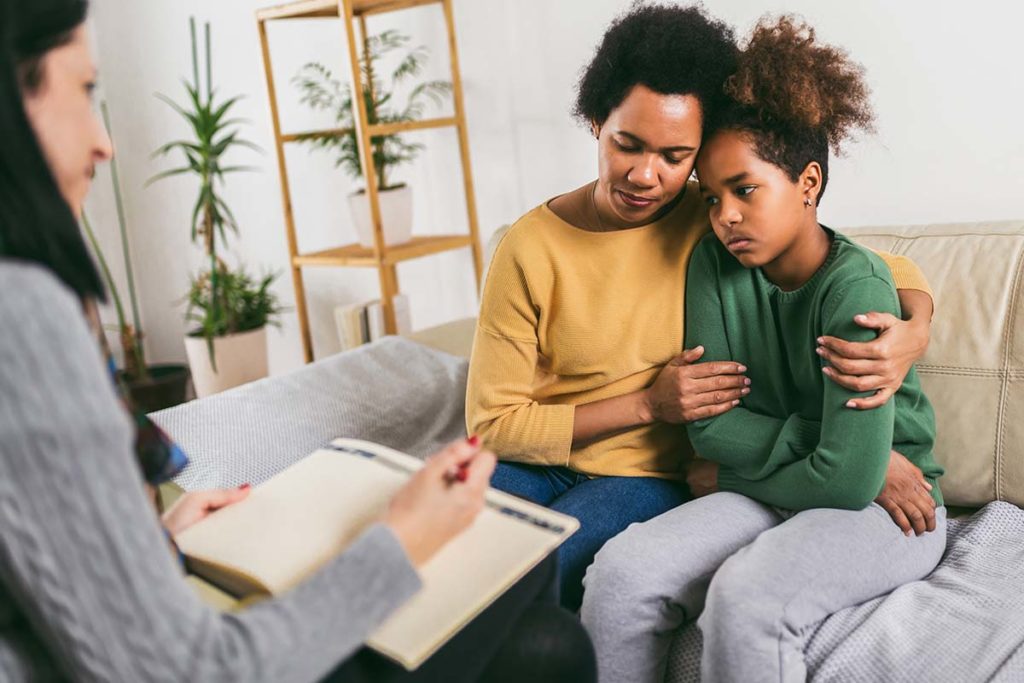Trauma profoundly impacts a person’s life. While it can be challenging to diagnose, understand, and process trauma, scientists now have a greater understanding of how traumatic events impact us later in life. Childhood trauma can lead to a range of symptoms, mood disorders, and post-traumatic stress disorder (PTSD) without children or their parents realizing it. A teen or adolescent trauma therapy program can help families unpack and treat childhood trauma.
If a young adult in your life is showing signs of PTSD, they are not alone. Don’t treat trauma at home. Rely on the team at Imagine Seattle for help. Our therapy programs help adolescents ages twelve to seventeen enhance their mental health and process childhood trauma. Learn more about teen and adolescent trauma therapy at Imagine Seattle today by calling 888.346.0473 or completing our online contact form.
The Link Between Childhood Trauma and PTSD
Trauma is a physical, emotional, and psychological response to a potentially life-threatening event. When the body finds itself in a dangerous situation, it releases chemicals like adrenaline to prepare for the fight, flight, or freeze mode. While this can help save someone’s life, it can also dysregulate the nervous system. During a life-threatening event, the body either uses these chemicals or stores them. When it stores them, a traumatic event becomes a traumatic memory that can lead to post-traumatic stress disorder.
PTSD develops from unprocessed trauma and prolonged stress. Most people think about post-traumatic stress disorder with combat veterans and those who have survived community-wide disasters like floods or mass shootings. Unfortunately, the link between childhood trauma and PTSD is clear.
This can cause:
- Emotional outbursts
- Reactionary behavior
- Violent behavior
- Self-isolation
- Always feeling on edge
Childhood trauma can be especially impactful on teen and adult life. The link between childhood trauma and PTSD can cause strange behavior that may be misdiagnosed as mood disorders or behavioral disorders. Many teens may not remember a traumatic event from their childhood because their brain creates screen memories to protect them. A screen memory can mask the memory of a traumatic event to help young adults survive.
Traumatized Child Behaviors Might Be PTSD
Trauma from childhood can present in a variety of ways, often rooted in anxiety and a lack of safety. Some of these behaviors might be signs of childhood trauma and post-traumatic stress disorder.
Common PTSD symptoms include:
- Avoiding certain places or activities
- Irrational fears
- Vivid nightmares
- Aggression
- Anxiety or depression
- Trouble concentrating
- Obsessive-compulsive disorder habits
- Withdrawal from social situations
Post-traumatic stress disorder can cause many young adults to struggle with sound, light, and visual stimulation. Sound and light can trigger traumatic memories and trauma responses. Unlike present danger, PTSD causes the body to feel as though it’s under threat when it isn’t. This can take a toll on mental health or focus and lead many young adults to feel the world is against them. They may experience an intense and uncharacteristic reaction to violence on television or in books. To families, this may seem like unstable behavior.
Trauma Therapy at Imagine Seattle
If your teen shows signs of post-traumatic stress disorder, they are not alone. The team at Imagine Seattle can help. Our mental health programs for teens ages 12-17 can help families understand, treat, and cope with adolescent PTSD. Our trauma-informed care programs provide traditional and alternative therapy programs to help young adults process childhood trauma for safe and healthy adult lives.
With medication management, group, family, and one-on-one behavioral therapy, our outpatient programs provide structure and flexibility to help every child thrive.
Help Your Teen Heal with Trauma Therapy at Imagine Seattle
If you think your teen is suffering from PTSD symptoms, our Imagine Seattle team is ready to help. Our comprehensive trauma therapy eases the intensity of PTSD and gives teens the tools they need to lead healthy lives. Learn more about the trauma therapy program at Imagine Seattle today by reaching out to us online or calling 888.346.0473.




